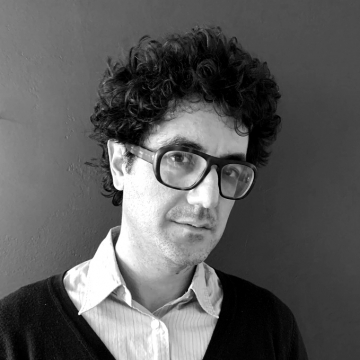Pandemics in History
In this series, Michael Rossi, will explore four pandemics—bubonic plague, cholera, influenza, and HIV-AIDS—that have likewise challenged human beings and transformed the ways that we have lived, worked, loved, and clashed.

Overview
Today we find ourselves in what seems to be a new historic moment. COVID-19 has not only taken lives, but its menace has spawned profound changes in social and cultural practices across the globe, from wearing facial coverings to social distancing. But coronavirus is not the first pathogen to threaten the human species.
In this series, Michael Rossi, Assistant Professor of the History of Medicine at the University of Chicago, will explore four pandemics—bubonic plague, cholera, influenza, and HIV-AIDS—that have likewise challenged human beings and transformed the ways that we have lived, worked, loved, and clashed.
Investigating these historical episodes will offer participants a new vantage point to reflect upon the novelty of our present circumstances, as well as to consider the ways we are traveling well-trodden pathways that have long linked disease to the human experience.
The three plagues that swept across early modern Europe and Asia were not the first instances of epidemic disease in recorded history. But to many observers, they seemed apocalyptic. With their unpredictability, terrible mortality, and devastating economic, social, and cultural impacts, they challenged philosophers and laypeople alike to come up with new explanations for disease, even as society seemed to be collapsing around them.
Download the pre-reading for the lecture, from Boccaccio’s Decameron
Watch the Recording
Little known before the nineteenth century, cholera encircled the globe in a series of pandemics that spanned the nineteenth century. In response, communities, municipalities, and nations drew on new medical ideas — not least of all germ theory and sanitation — to defend themselves. This was one of the first times that scientific medicine and political administration had combined to fight epidemic disease, and its practice changed ideas both of “the public” and of “health.”
Download the pre-reading for the lecture
Watch the recording
By the turn of the twentieth century, the successes of public health and the promises of new vaccines suggested to some observers that modern medicine might, in the not-too-distant future, entirely conquer epidemics. The influenza pandemic of 1918 brought those hopes crashing down, as nations around the world struggled to contain a new, strange, and deadly illness that resonated across the world like a bell. If the 1918 influenza pandemic shattered some naive dreams of medical progress, its deadly passage set the foundation for twentieth century biomedicine.
Download the pre-reading for the lecture
Watch the recording
The three plagues that swept across early modern Europe and Asia were not the first instances of epidemic disease in recorded history. But to many observers, they seemed apocalyptic. With their unpredictability, terrible mortality, and devastating economic, social, and cultural impacts, they challenged philosophers and laypeople alike to come up with new explanations for disease, even as society seemed to be collapsing around them.
Download the pre-reading for the lecture
Watch the recording
Speaker

Michael Rossi
Associate Professor of the History of Medicine, the Conceptual and Historical Studies of Science, and the College at the University of Chicago
Michael Rossi is Associate Professor of the History of Medicine, the Conceptual and Historical Studies of Science, and the College at the University of Chicago. A historian of medicine and science in the United States from the nineteenth century to the present, his work focuses on the historical and cultural metaphysics of the body: how different people at different times understood questions of beauty, truth, falsehood, pain, pleasure, goodness, and reality vis-à-vis their corporeal selves and those of others.
His first book manuscript traces the origins of color science—the physiology, psychology, and physics of color—in the late-nineteenth-century United States to a series of questions about what modern America ought to be: about the scope of medical, scientific, and political authority over the sensing body; about the nature of aesthetic, physiological, and cultural development between individual and civilization; about the relationship between aesthetic harmony, physiological balance, and social order.
His second project looks at how linguists, anatomists, and speech pathologists moved, over the course of the twentieth century, from viewing language as a function of sound-producing organs (tongue, lips, palate, larynx, etc.) to searching for a notional “language organ” within the brains of all human beings. Such interpretative shifts in understanding human anatomy are neither an ancient phenomenon nor one limited to extreme medical specialization, but rather are ongoing issues, providing a window on the social, political, and philosophical understanding of modern bodies, medicine, and science.
Prior to Chicago, Michael was a postdoctoral fellow in the Groupe Histoire des sciences de l’homme at the Ecole Normale Superieur de Cachan in France. He received a PhD in the history and anthropology of science, technology, and society from MIT and an AB from Columbia University.
